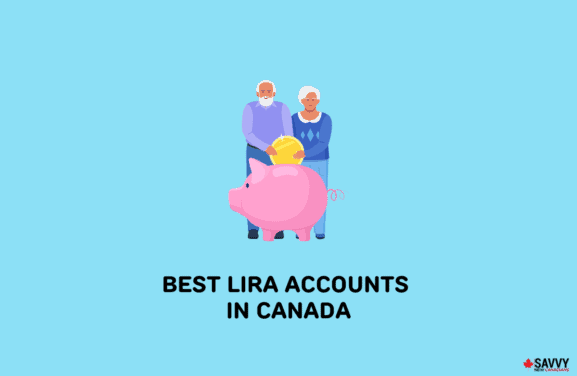Key Takeaways
- A 1% monthly penalty is levied by the CRA if you over-contribute to your TFSA.
- To correct an over-contribution, you can withdraw the excess amount immediately to limit taxes. Complete and return the TFSA over-contribution forms (TFSA Return & Schedule A) to the CRA.
- In some cases, you may be able to ask CRA to waive taxes if you can show your excess contribution was due to a reasonable error.
- Check your online MyAccount to find out your contribution limit or call their office. You should also keep track of your contributions.
The Tax-Free Savings Account (TFSA) is a great tool for saving and investing tax-free. As the name implies, any capital gains, dividends, or interest generated on your TFSA investments are tax-free for life.
If you have been eligible but never contributed to a TFSA since its inception, your total contribution room in 2023 is $88,000! It will increase to $95,000 in 2024.
Like the Registered Retirement Savings Plan (RRSP), the TFSA is a registered account, and it is essential to follow the rules put in place by the federal government.
It is relatively easy to over-contribute to your TFSA.
One popular reason is if you forget or do not understand how withdrawals affect your contribution room for the year you make the withdrawal.
While you can re-contribute any amount withdrawn from your TFSA, your contribution room doesn’t increase until the following calendar year.
So, what happens if you exceed your TFSA limit for the year?
TFSA Over-Contribution Example
Assume John has a total of $30,000 in his TFSA at the end of January 2023 after contributing his limit of $6,000 for the year. In March 2023, he withdrew $5,000 to deal with an emergency.
Based on the withdrawal rules, if he has no unused contribution room left, he will have to wait until the 2024 calendar year before re-contributing the amount withdrawn in 2023.
In this case, his contribution limit in 2024 will equal $5,000 plus the TFSA limit indexed for 2023 (i.e. $7,000).
If John forgets the rules and, in September 2023, he re-contributes the $5,000 withdrawn (even though he has no spare contribution room), he would be deemed to have $5,000 in excess contributions and will have to pay taxes on the amount.
Related: Understanding How The TFSA Works
TFSA Over Contribution Penalty
If you over-contribute to your TFSA, the Canada Revenue Agency (CRA) will charge a 1% monthly penalty on the excess amount. The penalty levied is based on the maximum chargeable on a full-month basis.
This means that even if the excess amount was in your account for only three days, you will be charged the full monthly 1% penalty on the total excess amount for that month.
In addition, the CRA can also charge a penalty of 100% on any income earned from the excess contributions. Unlike the RRSP, there is no penalty-free $2,000 “buffer” amount against errors.

How To Correct a TFSA Over-Contribution
- As soon as you realize you have over-contributed, withdraw the excess immediately. This will limit the potential taxes you have to pay to CRA.
- Contact the Canada Revenue Agency in writing, asking for a waiver on the taxes owed. You must show them that your over-contribution was due to a reasonable error and that you have taken steps to remove the excess amount.
- Complete and return the TFSA over-contribution forms (TFSA Return & Schedule A) to CRA. Pay the applicable taxes on or before June 30th of the year following when you made the excess contributions. If CRA approves your tax waiver request, you may get some or all of the taxes you paid back.
- If you come across any problems or become confused about what to do, contact CRA at 1-800-959-8281.
Related: Comparing the TFSA vs. RRSP
How To Avoid TFSA Over Contributions
Make sure to track your contributions, and don’t go over the limit.
When you make a TFSA withdrawal, you cannot re-contribute that amount until the following year or later.
Also, you can check your CRA My Account to see how much TFSA contribution room you have available or call the CRA at 1-800-267-6999.
Other TFSA Penalties
While much less common than excess contributions, other issues that can lead to an individual incurring penalties on their TFSA account include:
- TFSA containing non-qualified investments
- TFSA containing a prohibited investment
- Contributing to a TFSA while you are deemed a non-resident of Canada.
Conclusion
While you can check your CRA My Account or call them to request a TFSA Transaction Summary, what you get may not include recent transactions you have made.
For example, what is available on the CRA MY Account service does not usually reflect transactions you made in the current year.
Your best bet to stay within the CRA’s TFSA limits and avoid over-contributing is to track all your contributions and withdrawals.
Also Read:




can contribution to TFSA in a year affect the quantum of the OASP to be received next year…
could you please offer your opinion on this point?
@Dipak: No, TFSA funds and returns are non-taxable and do not count as taxable income. Your TFSA contributions will not impact your OAS pension.
Thank you Mr Omololu for the clarification.
I had an apprehension that the contribution one makes even to TFSA might be construed by the GIS working team as being sourced from a new or additional income, which might be exigible to tax,and proceed accordingly.in their calculations.
your valued opinion now puts my apprehensions to rest;thank you again
My husband has some room in his Tfsa & we split income so does it make any difference if we wait till next year to add to his Tfsa?
I have invested 20000$ in TFSA account in 2012 on the advise of my bank before I was leaving Canada to join my husband in Dubai. I was totally unaware of TFSA limits neither the bank advised me on this.
I returned to Canada in 2020 and after filing my return for the year, I received notices from CRA on TFSA over contributions for last 8-9 years. Although I earned only 2700$ on my TFSA investment over last 8-9 years but I was being penalized by CRA to pay 50000$.
Please advise how best to tackle this as I was totally unaware of the law when I invested the amount and besides I didn’t earned that much money to pay this huge penalty.
@Hina: Sorry to hear about this. I must say that the process for dealing with this is really painful and it may be best for you to contact an accountant who can help you with the logistics. All the best.
I just started day trading can I open a TFSA and trade stocks with the TFSA account, or do I just put the money I make into the TFSA? I’m not sure how this works. Example: I opened a trading platform transfered 1700 from my bank account to it. Made two trades and was up 305.00 do I transfer the 305 to my TFSA or do I transfer all of my funds and do my trading from the TFSA account. Thanks very much for reading and replying.
@Dwight: For this to work, you should be trading inside a TFSA investment account i.e. you should set up the account as a TFSA account right off the bat.